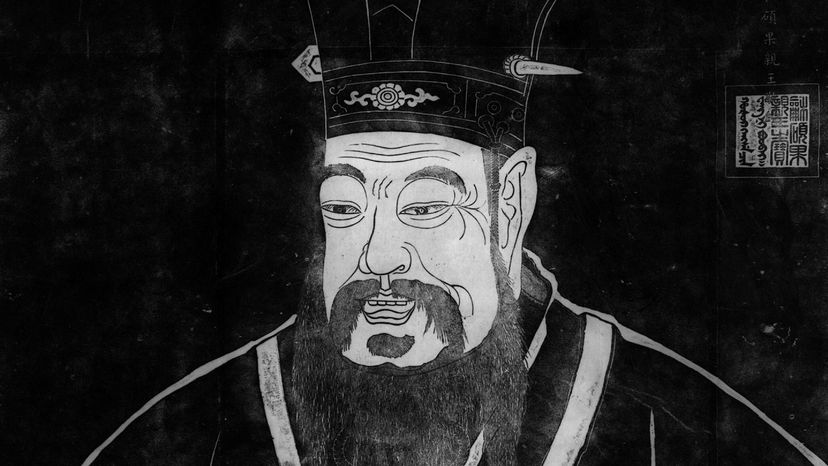
The man we call Confucius was actually named Kong fuzi or "Master Kong" and the impact of his teachings on ethical and moral philosophy — in short, the best way to live and treat others — have echoed across the millennia.
Confucius was born in 551 B.C.E. to the concubine of a man of moderate social status in the kingdom of Lu (now the Shandong Peninsula of China). Confucius' father, an important aide in a more powerful house, died when Confucius was just 3 years old, leaving his family in poverty. The turmoil of Confucius' personal life was mirrored in the political and cultural changes in Lu, where the age-old traditions and norms of the ruling class were being torn down by power-hungry warlords.
Advertisement
As a young man, Confucius gained a reputation for his mastery of the traditional rituals and ceremonies associated with the once-flourishing Zhou culture. He began tutoring aristocratic young men in the importance of li, the ritual institutions of the Zhou that included everything from religious rites and court ceremonies, to personal etiquette and ethical behavior. It was only through li that a man could become a junzi, a truly benevolent and capable person, or a "gentleman."
Confucius became an adviser to the Duke of Lu, but the leader failed to live up to Confucius' high ethical standards, so Confucius and his small clutch of disciples left Lu in search of an incorruptible ruler. For 15 years, Confucius traveled from state to state counseling different leaders, each of whom proved a disappointment, but provided ample opportunities for Confucius to further hone his ethical worldview.
Confucius eventually returned to Lu, where he gathered more disciples and edited the classics of Zhou culture, including texts on ritual, music, history and poetry that became the bedrock of later Confucianism. Soon after Confucius' death in 479 B.C.E, his followers committed his most cherished sayings to print in a series of dialogues called the Analects.
We spoke with Mark Csikszentmihalyi and Bryan Van Norden, two scholars of Chinese philosophy, to better understand the depth and resonance of Confucius' philosophy as recorded in the Analects. Here are five famous quotes to think about.
Advertisement
